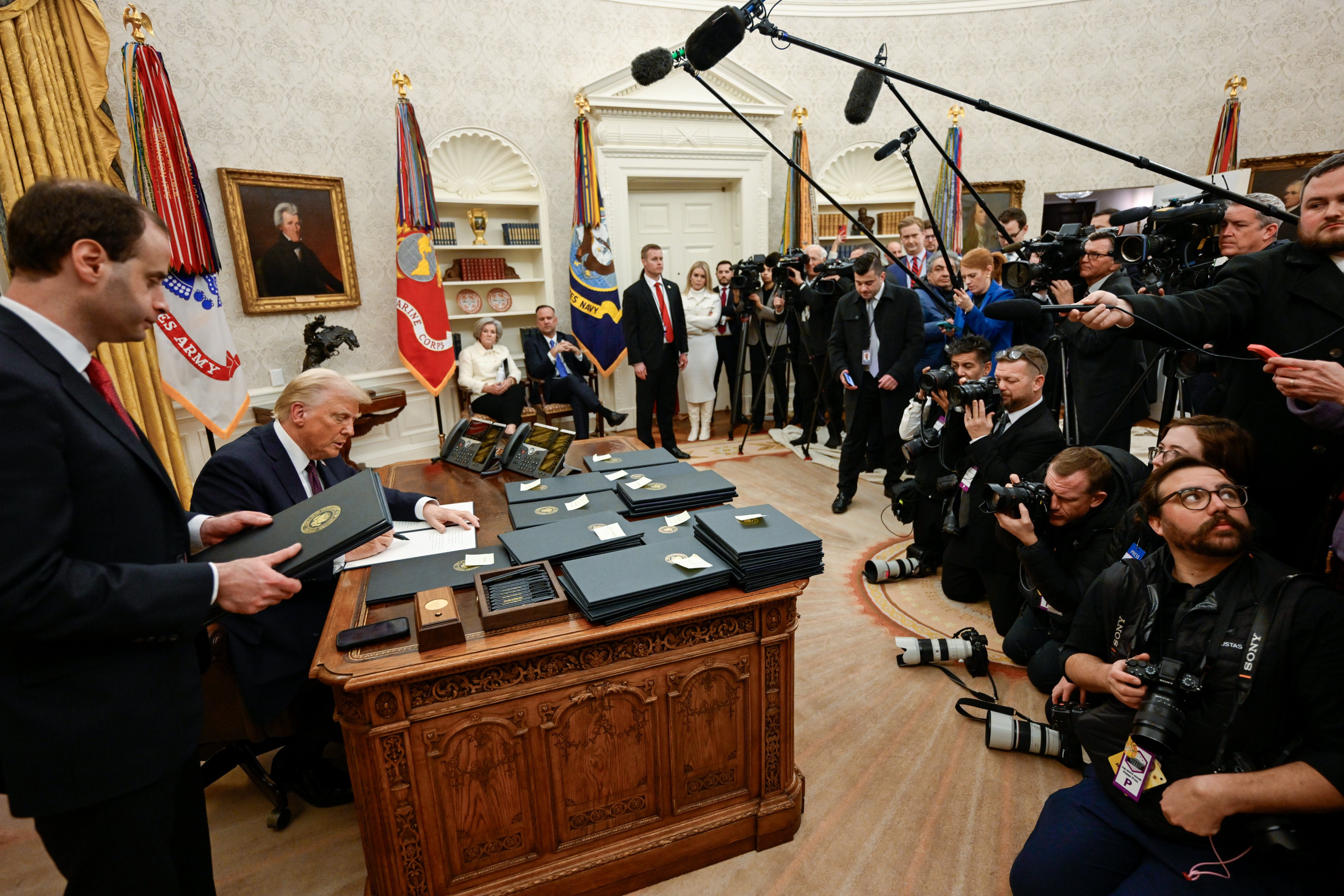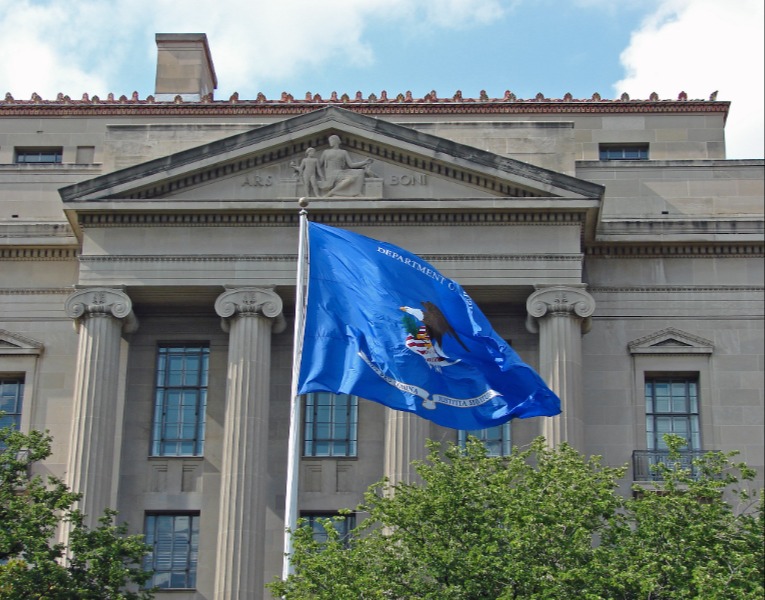The Situation: Stand With The Powerful!

Published by The Lawfare Institute
in Cooperation With

The Situation on Tuesday asked what law authorizes the Trump administration to send deportees to El Salvador for indefinite detention.
Today, let’s leave the deportation cases related to “the tropical paradise of El Salvador”—for so its president calls the place—and talk about the ivy-covered halls of Harvard University.
For just as Kilmar Abrego Garcia and a handful of big law firms are, Harvard is suing the Trump administration over executive actions that violate its civil liberties.
It may seem faintly absurd to group Abrego Garcia in with Harvard and Big Law as victims of Trumpian oppression. No, Harvard isn’t alleging that the administration picked it up off the street and deported it to a dungeon in El Salvador with no due process.
But if one takes seriously the idea that Trump is attempting an authoritarian takeover of American society, attacks on the powerful—while less morally disgraceful, perhaps, that attacks on the powerless—are arguably more essential to the project and thus at least as important to resist. Besides, like Abrego Garcia, Harvard has a righteous case.
Harvard’s claim boils down to this: the administration is freezing billions of dollars in grants for health and science research to retaliate against the university for refusing to submit to a federal takeover, thus violating core First Amendment freedoms. The administration purports to be upset about incidents of antisemitism at Harvard, but the funding freeze goes way beyond activity one might plausibly understand as related to that problem. What’s more, the administration’s demands of the institution would require government oversight of admissions and hiring, curricular decisions, the elimination of all DEI programs, and other intrusions on core programmatic activity.
In one’s dismay at Trump’s predations, it’s easy to see the Harvard and law school cases as something less than the vanguard of the struggle for human liberty. These cases don’t involve the vulnerable, but the powerful. They don’t involve anyone getting kidnapped. They don’t involve corrupt secret deals with tinpot dictators, plane flights in the middle of the night, people getting deported for opeds, or tourists ending up in horrific ICE detention. They don’t involve megaprisons, just megabucks.
And yet, it is the very fact that these cases involve Trump picking on the powerful that make them important—for several different reasons.
The first is that unlike Abrego Garcia, Harvard—which is a kind of hedge fund with a campus and students—doesn’t need the ACLU to defend itself. (Full disclosure: I sometimes teach at the Harvard Law School). It has all the resources it needs to litigate Trump’s power grab aggressively and the stakes are so high—and the law so clearly on its side—that it will surely do so. This means that the risks of challenging the administration’s lawless positions don’t have to get borne by individuals, particularly vulnerable ones. That’s a good thing.
And it’s not merely a theoretical point. Consider that there’s a real chance, maybe even a probability, that the Alien Enemy Act deportations will be declared to be unlawful, but that the courts will not be able to force the administration to readmit more than a hundred men illegally sent to the El Salvadoran gulag under it. Their lives and freedom will be the costs of vindicating the principle whose violation the courts may well fail to remedy but may use to protect others from similar behavior.
By contrast, the cost of vindicating the principle that the president cannot bully universities into adopting his ideology will be borne by an institution with a $50 billion endowment and can defuse the pain—which will be real—over an institution of great depth and resilience.
But there’s a more important reason these cases matter—which is that it is actually impossible to achieve authoritarianism by picking on the powerless. Eventually, he who aspires to authoritarianism has to take power from those who actually have it.
Kidnap all the Kilmar Abrego Garcias in the country and send them all to the warm embrace of President Bukele, deport millions of others, and you haven’t changed the constellation of political power in the United States much at all. The fantasies of the far right notwithstanding, after all, undocumented aliens don’t vote and they are not a source of power for the anti-Trump world. Oppressing them appears to be great fun for Trump and his people, but it’s not obvious at all that doing it enhances Trump’s political power. Rather, I suspect it does more to stoke anti-Trump opposition than it does to diminish opposition capacity.
Shaking down big law firms and going after major universities, by contrast, is productive—not just base-stokingly satisfying—work for a would-be authoritarian. In a litigious culture, going after law firms discourages them from getting too involved in pain-in-the-ass righteous causes, representing too many Abrego Garcias, or zealously taking on corporate interests that—say—might want to challenge deranged trade policies.
What’s more, elite universities represent a genuine source of liberal cultural power. If Trump really wants to Viktor Orbán-ize the United States, he genuinely needs to take on and force the submission, by one means or another, of major institutions that collectively enable opposition voices: the press, the media and entertainment industry, civil society, and universities. Indeed, Orbán did exactly that, including to universities.
So eventually, Trump has to go after Harvard. And for that reason, even if the slogan “Hands Off Harvard!” sounds absurd, the concept is essential to keeping strong the platforms of independent thought. “Stand with Perkins Coie!” sounds ridiculous too. But the concept is the same.
Fortunately, Trump is going about his project in a fashion that seems likely to maximize his chances of failure. The way to bring Harvard to heel would be subtle, backroom pressure over time—always deniable, as much carrot as stick. But that’s not Trump’s style. The bombastic bullying is half the point.
So Trump does things like announce his retaliatory intent in the very executive orders that then retaliate against law firms. And his minions send letters to Harvard that spell out overtly substantive demands for power over the university in diverse areas of ideology far beyond the treatment of Jewish students under civil rights statutes. This sort of clumsy, reading-the-stage-directions authoritarianism dramatically increases the attack surface for a federal action in litigation. It gives the law firms and universities, those that have the guts to go to court anyway, easy cases to win—as this week’s hearings in two of the law firm cases show.
Yet it is possible to lose the war after winning every legal battle, which is why so many law firms have capitulated and why other universities aren’t uniformly behaving as Harvard is.
A university can get an injunction against a cutoff of its fund, and I have no doubt that Harvard will. But no such injunction can guarantee the university that the flow of future money will be unencumbered by political retribution, nutso beliefs about medical truth from the current leadership of the Department of Health and Human Services, tax-exempt status investigations, interference in the visas of foreign students, staff, and faculty, or some indiscernible melange of all of the above.
And this brings me to the final sense in which the Harvard case and the Abrego Garcia case are two sides of the same civil liberties coin. In both cases, winning the litigation is only the beginning. Abrego Garcia had an easy time convincing Judge Paula Xinis that he deserved relief and order bringing him home. Enforcing her order has been the problem.
The powerful are going to have a similar challenge in getting their rights not merely articulated and vindicated by the courts but also, one might say, “effectuated.” Harvard will win its case, but then the real fight will begin—the fight to “effectuate” both the “release” of its existing funds and the fight to prevent blacklisting in future grant decisions. No, this effectuation of release is not a habeas corpus matter, but don’t underestimate its importance to America’s democratic future.
And as with Abrego Garcia, that fight will not just be a legal one. It will involve political pressures. It will involve electoral politics. It may depend, in the end, on Trump’s political popularity and what Congress—over time and over whatever changes in leadership may come about—lets Trump get away with. It will be a long fight.
The Situation continues tomorrow.





